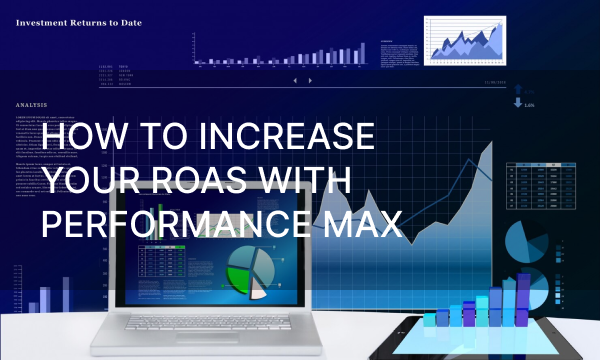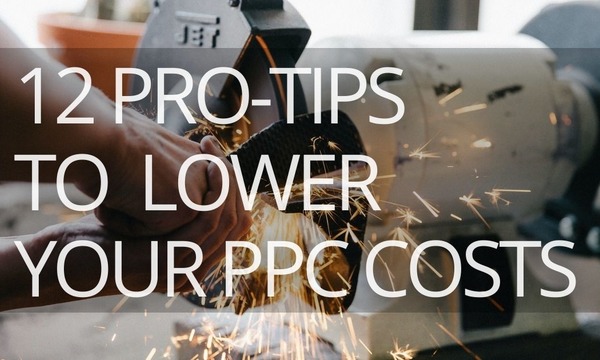More businesses and advertisers turn to pay-per-click (PPC) advertising campaigns to attract customers, and for a good reason. A comprehensive PPC campaign strategy provides good value and allows businesses to set key performance indicators (KPIs) to measure effectiveness and customize the campaign as needed.
A Forbes report adds that traffic brought by PPC ad campaigns get 50% more conversions than organic marketing.
While PPC campaigns’ advantages are unquestionable, sometimes marketers find themselves too caught up with key metrics that they fail to optimize their campaigns for conversions. Often, they are left obsessing about the cost-per-clicks or overloading campaigns with keywords that they cannot reap the benefits successfully.
With that, this article will outline eight tips and the common mistakes advertisers make to have a gist on how to create a PPC campaign.
#1: Choose the Right Bid Strategy for Your PPC Goals
Search engine marketing is a battlefield that requires advertisers to create a comprehensive plan. Unfortunately, there are so many bid strategies in the market that even the most experienced advertiser can easily be overwhelmed with the options. One of the best PPC tips and tricks useful in narrowing your choices is defining your campaign goals.
Start by deciding whether you want to achieve more conversions, clicks, or impressions from your PPC campaigns. Defining your PPC goals allows you to optimize campaigns to ensure consistent marketing strategies, budgets, and business models. This way, you can quickly zero in on the right automated bid strategy for your goals and achieve the results you need without wasting time and financial resources.
#2: Optimize Your Keywords
Keyword optimization is a vital aspect in achieving tremendous value from your PPC campaigns. Advertisers must speak their customer’s language to make their campaigns effective and drive traffic and conversions. However, some make the mistake of bidding for additional keywords to increase revenue potential.
While acquiring extra keywords is not a bad idea, it rarely works out and often brings adverse effects to your campaigns. Optimizing keywords helps businesses to concentrate on high-performing keywords and filter out low-performers to avoid increasing ad spend. You can use PPC optimization techniques to write more useful content to gauge your market and understand consumer behavior.
7 Sources of Effective PPC Keywords You Should Try this Year
#3: Create Engaging Ad Copies
The importance of a PPC ad copy is far more crucial than people realize. Even if you are at the top of search pages, seemingly insignificant details in the copy can make or break your PPC campaign’s success. With people’s attention spans getting shorter, advertisers must ensure that their ad copies will stand out to gain more clicks, impressions, and conversions.
One way to make your ad copy stand out is to concentrate on creating content on how your services solve customer pain points. Keeping your ad copy to pain points increases its traffic potential and reduces bounce rates because the content itself brings authentic value to customers. It also enables you to learn more about your target market so that you can tweak your campaigns for maximum reach.
#4: Properly Adjust Your Bids
Knowing how to improve PPC performance allows advertisers to reduce cost-per-click and ensure that their keywords yield results. The challenging part of running PPC campaigns is that you have to determine the right time and location to place ads because keyword clicks do not necessarily mean conversions. Applying bid adjustments enables you to change the frequency of how your ads are displayed based on time, location, and devices customers use to perform online searches.
Although this might not seem like a big deal, performing such adjustments will allow you to optimize PPC spend. Bid adjustments enable you to target your business’s most valuable clicks, so you no longer conduct thorough yet time-consuming assessments of each keyword. They also assist in prioritizing unique buyer personas while still targeting all relevant audiences, increasing campaign efficiency.
The best way to leverage bid adjustments is to make use of PromoNavi’s automated recommendations. The system analyzes your campaigns and suggests device and location bid adjustments to help you reach best KPI values.
#5: Take Advantage of Dynamic Keyword Insertion
Dynamic keyword insertion (DKI) empowers businesses to customize their PPC ad campaigns to their customer’s search queries and automate PPC ad copy creation. This increases prospects and customers’ potential to click on content that presents close to what they were looking for, improving quality score. Simultaneously enhancing your quality score ultimately leads to reduced cost-per-conversion, higher ad positions, and minimum cost-per-clicks.
One way to take advantage of DKI is to use dynamic marketing automation tools. The best marketing automation solutions are geared with robust DKI capabilities that allow you to create different ads for multiple keywords and generate significant visibility. You can check this comprehensive marketing automation software list to find a solution that ensures your ads are directly connected to your unique ad groups.
#6: Choose the Right Targeting Options
Most businesses do not have the luxury to set up multiple PPC optimization campaigns to reach every segment. Therefore, marketers must learn how to identify the right targeting options to focus their PPC optimization efforts on individuals most likely to convert. This also allows you to create messages that speak volumes specifically to them, increasing the likelihood of conversions.
However, choosing the right targeting strategy can be challenging with so many options available, each designed to help marketers reach their target audience. An excellent start in narrowing your options is to define PPC campaign goals and objectives and evaluate existing customer behaviors and the content they’re viewing. This will give you an insight into what type of targeting option you will need to engage with prospects and turn them into customers.
#7: Check your Landing Pages
Landing pages increase conversions by driving more traffic to your brand and picking qualified leads from your search traffic. With that, you should always ensure that your landing pages are free from broken links to prevent the audience from abandoning your brand. Data shows that 88% of online consumers are less likely to return to a page after a bad experience.
Broken links can also devalue your search engine optimization (SEO) efforts and restrict the flow of link equity across your pages. One way to resolve this issue is to take advantage of marketing automation tools with link checking capabilities to evaluate multiple URLs at once. It also allows marketers to schedule periodic check-ups on their landing pages to enhance search engine results and improve user experience.
#8: Set up Your Analytics and Goals
Setting up PPC analytics and goals ensures that your marketing efforts are helping your bottom line. This also allows you to understand user behavior patterns that can be used to align PPC optimization strategies for better results. For starters, use software solutions that allow you to have the analytics code installed across your pages.
This empowers you to build goals and measure or analyze how well you are meeting core objectives. There are many custom goals and templates to help you initiate goals that make excellent business sense for your operations, including event, duration, page, and destination goals. By setting up these analytics and goals, marketers can gain insights into improving their efforts and conversion rates without spending extra marketing resources.
Ensuring Successful PPC Campaign Launch
Launching a PPC campaign requires businesses to know customer preferences and how they are looking for them online. Therefore, using marketing automation solutions is essential in avoiding common mistakes and ensuring a successful launch. PromoNavi is one of the leading solutions that makes it possible.
PromoNavi is an industry-grade marketing automation solution designed to help digital marketers create more effective campaigns, analyze competitions, and automate daily tasks. It offers easy-to-use competitor analysis and PPC reporting tools, a keyword planner, and automated PPC recommendations that help your digital marketing efforts.


